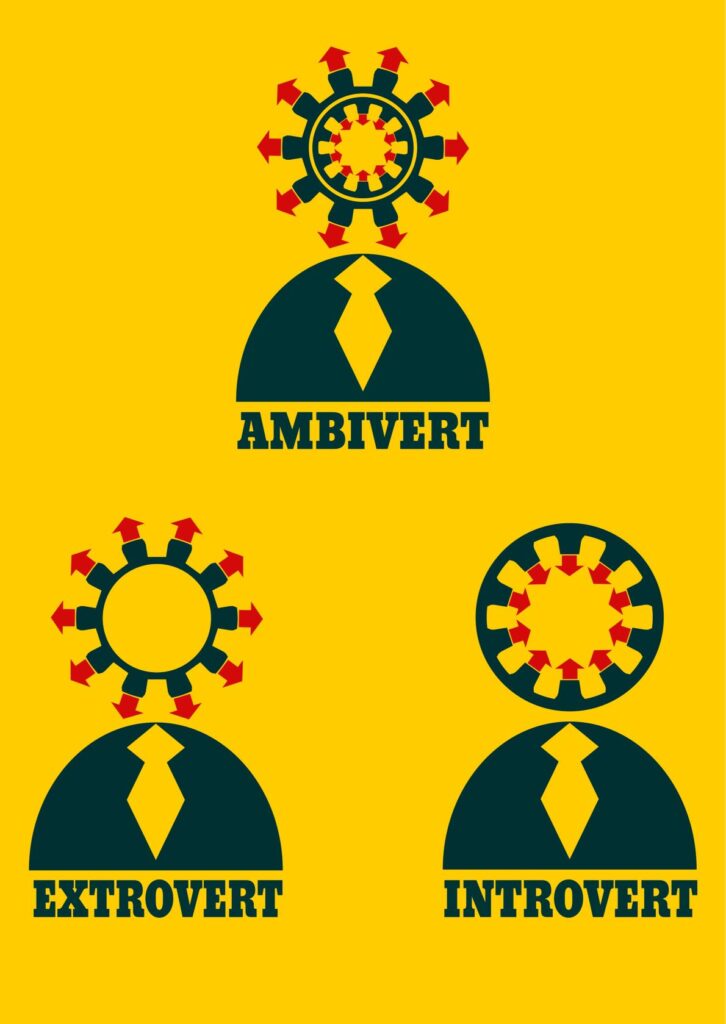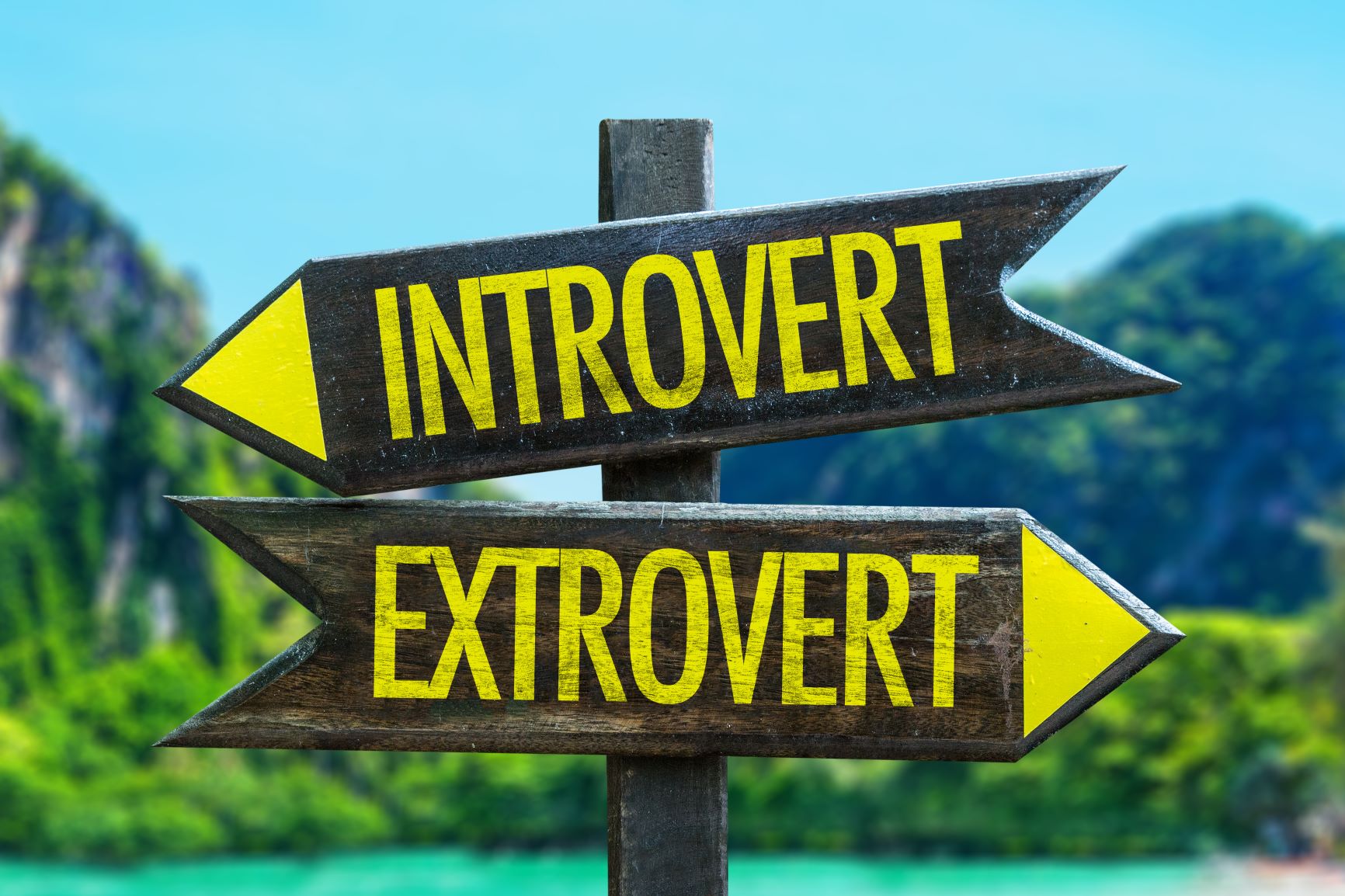Was there ever a chance I could’ve been an extrovert? I don’t think so. Can I ever just “snap out” of being an introvert? Umm….no. That’s not how any of this works.

Although there isn’t indisputable proof that people are born either introverted or extroverted, the consensus in the articles I’ve read suggest that we are one or the other from womb to tomb. Well, we at least fall somewhere on a spectrum of each trait. No one is ALL introvert or extrovert, and there are those who fall smack dab in the middle.
It really is in the genes! And it’s all about how the brain is wired. Back in 2005, the University of Amsterdam studied volunteers who were separated out into “introvert” and “extrovert” groups. The researchers had all of the volunteers gamble while they monitored two different parts of the brain: the amygdala (which handles emotional reactions) and the nucleus accumbens (which handles how we process dopamine). Their results showed that extroverts had much stronger activity in those two regions while playing, while introverts were not getting the same “high” as their counterparts.
Another example that looks at the brain comes from writer Gabrielle Moss in her article “Are Introverts Born That Way? What Makes Some People Introverted According To Science”. She writes, “A 1999 study found that even the patterns of blood flow inside introverted and extroverted brains are different. The brains of introverts had greater blood flow through the frontal lobes and the anterior thalamus — areas associated with planning ahead, solving problems, remembering the past, and other fun things you can do alone in a room by yourself. Meanwhile, the brains of extroverts tended to focus blood in the posterior thalamus, the anterior cingulate gyrus, and the temporal lobes — areas that help us interpret the data that our senses take in from the outside world. Which means not only that introverted and extroverted brains prioritize different functions, but also that you can blame your brain the next time you get busted for not interpreting the data your senses take in from the outside world (aka spacing out).”
Dr. Marti Olsen Laney has done extensive neurological research on introverts to explain how genetic the trait is. In her book, “The Hidden Gifts Of The Introverted Child: Helping Your Child Thrive In An Extroverted World”, Laney says the introvert/extrovert trait is one of the most strongly hereditary ones, but where we fall on the spectrum of each can be influenced by outside circumstances. Often, the preference for one or the other is fixed early in life with most children staying true to whichever trait they preferred during their first four months.

Our biochemistry has a big role to play in all of this as well. Our brains have thier own chemical soup made up of over 60 neurotransmitters that tell it how to work, with dopamine being the big player here. While we all have the same ingredients in our soup, our genes (that we are born with) determine how much of each ingredient we have, and that differs for each and every person. This is how two people with the same soup can end up on very different parts of the spectrum.
Andre Solo, in his article “Are You Born An Introvert, Or Do You Become One?” on Introvert, Dear, summarizes Laney’s findings: “That means two introverts with the same genetic disposition could come across quite differently. One might stay closer to the high-stimulus end of their comfort range, while another stays cautiously at the low end. These behaviors are largely learned through experience. If a child gets enough positive experiences with social time, they might enjoy pushing the top of their range, even though they’re an introvert. A child who has negative experiences could develop more reclusive, quieter ways.“
To sum it up, whichever trait you favor, you were most likely born that way, but how much you lean one way or the other can be flexible from day to day and influenced by your experiences. So be kind to your counterpart, especially if you don’t relate to them. Remember, introverts can’t turn themselves into a social butterfly any more than extroverts can stop talking.

